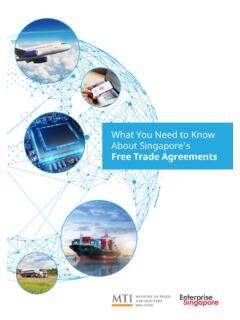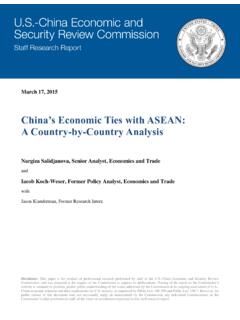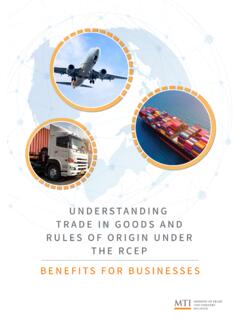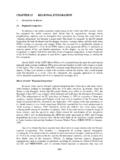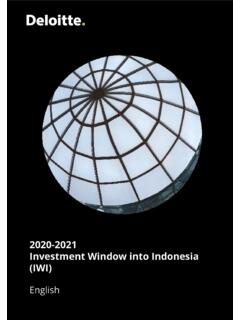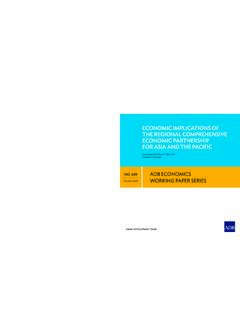Transcription of Micro and Small Enterprise Upgrading in the Philippines
1 14-10112_US_Study 12:53 Micro and Small Enterprise Upgrading in the PhilippinesThe Role of the Entrepreneur, Enterprise , Networks and Business EnvironmentMicro and Small Enterprise Upgrading in the PhilippinesThe German Development Institute / Deutsches Institut f r Entwicklungspolitik (DIE) is a multidisciplinary research, policy advice and training institute for Germany s bilateral and multilateral development cooperation. On the basis of independent research, it acts as consultant to public institutions in Germany and abroad on current issues of cooperation between developed and developing countries.
2 Through its nine-month training course, the German Development Institute prepares German and European university graduates for careers in the field of development e Hampel-Milagrosa studied Agricultural Economics (BSc) and Development Economics (MSc, cum laude) at the University of the Philippines at Los Ba os and the University of Ghent, Belgium respectively. She finished her PhD in Social Science specializing in Institutional Economics at Wageningen University and Research Centre in the Netherlands. After obtaining her doctorate in 2006, she worked as a Senior Researcher for the Department of Economic and Technological Change at the Center for Development Research (ZEF) of the University of transferred to the Department of Sustainable Economic and Social Development of the German Development Institute (DIE) in 2007 and alongside working on BMZ-funded projects has consulted for GIZ, BICC, DANIDA and UNIDO.
3 She specializes in private sector development, entrepreneurship, gender, and value : Deutsches Institut f r Entwicklungspolitik86 Micro and Small Enterprise Upgrading in the Philippines :The role of the entrepreneur, Enterprise , networks and business environmentAim e Hampel-MilagrosaBonn 2014 Studies / Deutsches Institut f r Entwicklungspolitik ISSN 1860-0468 Die deutsche Nationalbibliothek verzeichnet diese Publikation in der Deutschen Nationalbibliografie; detaillierte bibliografische Daten sind im Internet ber Deutsche Nationalbibliothek lists this publication in the Deutsche Nationalbibliografie.
4 Detailed bibliographic data is available at ISBN 978-3-88985-640-1 Deutsches Institut f r Entwicklungspolitik gGmbHTulpenfeld 6, 53113 Bonn +49 (0)228 94927-0 +49 (0)228 94927-130 E-mail: and AcknowledgementsThis philippine MSE Upgrading study is part of a three-country research project carried out by the Department of Competitiveness and Social Development of the German Development Institute / Deutsches Institut f r Entwicklungspolitik (DIE), a leading international think tank for development policy.
5 All three country-case studies employed similar methodologies to compare the Upgrading dynamics of MSEs in the Philippines , Egypt and India. The overarching research questions that guided the country-case studies are:1. Why do some enterprises manage to upgrade while others do not?2. How does the Enterprise - Upgrading process unfold?The author is very grateful to the following individuals and agencies for supporting this philippine MSE Upgrading study:My research assistants Mary Fchel Estanislao in Luzon and Recarte Bacus in Mindanao;the philippine Department of trade and Industry Bureau of Micro , Small and Medium Enterprise Development (DTI BMSMED) and the trade and Micro , Small and Medium Enterprise Development Division (TMSMEDD) Region 11.
6 Andthe Bundesministerium f r wirtschaftliche Zusammenarbeit und Entwick-lung (BMZ) Philippines / the Federal Ministry for Economic Cooperation and Development Philippines through its Private Sector Promotion Program (SMEDSEP), headed by Dr. Volker author is indebted to Mrs. Ma. Christina B. Ramos, former president of the Food Processors association of Davao (FPAD), Mr. Claro Arriola, former president of the Textile Mills association of the Philippines (TMAP) and Mr. Joel Gaudia, president of the Samahang Magsasapatos ng Pilipinas ( association of Shoemakers in the Philippines ) for their invaluable support in helping locate entrepreneurs for the course of the research, two presentations were made at the asian Institute of Management in coordination with its Executive Director, Dr.
7 Ronald U. Mendoza. In May 2013, the Institute for Small Scale Industries of the University of the Philippines Diliman hosted two workshops (in Manila and Cebu) to discuss the project findings. The 20th UP President, Honorable Dr. Alfredo E. Pascual, graced the Manila event with his presence, while the UP Cebu College Dean, Atty. Liza D. Corro, welcomed the research team to Cebu. The author is grateful for our intellectual , the author is deeply grateful to Markus Loewe, Caroline Reeg and Tilman Altenburg for their helpful comments regarding the conceptualization, implementation and writing up of this philippine MSE Upgrading , May 2014 Aim e Hampel-MilagrosaContentsAbbreviationsExe cutive summary 11 Introduction 92 MSME Upgrading a conceptual framework MSE Upgrading definitions Determinants of Enterprise Upgrading Internal Upgrading factors.
8 Entrepreneur and Enterprise characteristics Entrepreneur characteristics Enterprise characteristics External Upgrading factors: networks and the business environment Personal and professional networks Business environment 243 The policy environment and MSE performance philippine MSE policy environment philippine MSE performance 284 Methodology of the philippine MSE Upgrading study Survey area and sector selection Respondent selection Questionnaires and data management 405 Findings on SME Upgrading in the Philippines Sample composition Cross-sectoral overviews Upgrading trajectories in food
9 Processing The philippine food processing sector The sample The ranking Analysis of Upgrading dynamics in the food processing sector Upgrading trajectories for footwear and leather enterprises The philippine footwear and leather sector The sample The ranking Analysis of Upgrading dynamics in footwear and leather Upgrading trajectories in textiles and garments The philippine textiles and garments sector The sample The ranking Analysis of the Upgrading dynamics in the textiles and garments sector Summary 1516 Takeaways and policy directions Takeaways Policy implications 158 Bibliography 161 TablesTable 1: MSME classification in the Philippines 28 Table 2: philippine MSME profile (2006 and 2008) 29 Table 3: Doing Business 2013 ranking of the Philippines and selected asian economies 31 Table 4.
10 philippine Enterprise -size categorization by asset and number of employees 37 Table 5: Purposive sampling methods and number of respondents 39 Table 6: Descriptive characteristics of upgraders and non-upgraders 43 Table 7: Absolute and average growth rates of upgraders and non-upgraders (employee size) 52 Table 8: Types of innovation by upgraders and non-upgraders 53 Table 9: Sources of business ideas 55 Table 10: Descriptive statistics of the food processing sector 72 Table 11: Financial capitalization of food processors (at start-up and in 2012) 75 Table 12: Absolute and compounded annual-growth rates of food processing upgraders and non-upgraders (based on employee size) 78 Table 13: Types of innovation of upgraders and non-upgraders in food processing 79 Table 14: Ranking of success factors and constraints to Upgrading in food processing 82 Table 15: Descriptive statistics of footwear and leather upgraders versus non-upgraders 106 Table 16.



